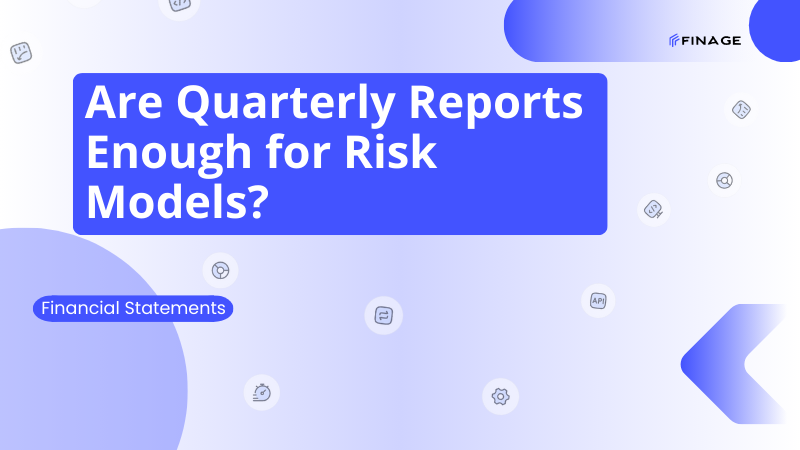Is Binance the Upcoming Falling Domino?
7 min read • January 13, 2023

Introduction
Nearly two months have passed since Sam Bankman-crypto Fried's enterprise collapsed. The fall of the cryptocurrency exchange FTX and the hedge fund Alameda Research, which were employed in a fraudulent scam that some have compared to "worse than Enron," irrevocably altered how the public views cryptocurrencies.
Not that everyone was aware that the sector was rife with fraud and dishonest people, but even the most respected and revered leaders might be con artists. After Sam Bankman-Fried (SBF) was deposed, attention quickly shifted to Binance, the biggest cryptocurrency exchange, and organization. Was it yet another FTX, Celsius Network, Three Arrows Capital, BlockFi, or Terra-Luna that would eventually fail?
Unbeknownst to many, however, Binance's list of warning signs has already grown to such a size that it eclipses SBF's empire's pre-collapse indicators. First off, the CEO of Binance, Changpeng Zao, often known as "CZ," has repeatedly claimed that the firm has no headquarters. While this claim initially seems modern, it is likely an attempt to hide the fact that Binance has been prohibited from functioning in a number of nations.
Despite being the biggest and most prestigious cryptocurrency corporation on the planet (ostensibly), Binance has not provided audited revenue, profit, or cash statements. Rather, CZ has only made the company's assets public through a dubious "proof of reserves" method, which is useless without also making the company's obligations public. He claims that this section of the balance sheet is completely absent. He previously tweeted, "We don't owe anyone debts, etc.," hinting that the biggest cryptocurrency exchange in the world doesn't follow basic accounting procedures.
Worse yet, a study by Reuters indicated that Binance's files were a "black box," raising the possibility that the company may not even have a working balance sheet. The fact that Wei Zhou, Binance's former chief financial officer, never had access to the company's complete records during his three years in that position was by far the most concerning information. As they say in the crypto world, "probably nothing."
One of the advantages of crypto over traditional finance (TradFi) is more openness, but many crypto-thought leaders, including CZ, have carried this idea too far by openly incriminating themselves on social media platforms. CZ has been acting similarly to SBF, who frequently used Twitter to spill the beans and expose all of his transgressions. He removed a tweet saying that the "crypto industry recovery fund" had attracted "substantial interest" after announcing its creation.
This fund recently stated that it would purchase the assets of Voyager, a business that leased a third of its assets to a "Madoff-Style Ponzi." The most amazing incident, though, happened just recently. CZ appeared to confirm in a Twitter Space the suspicions of cryptocurrency investigator Dirty Bubble Media that Binance and its U.S. subsidiary, Binance U.S., were mixing customer funds in order to circumvent U.S. restrictions.
These moves may have seemed a little suspicious to doubters before the FTX collapse, who were already forming the impression that the crypto elite didn't know what they were doing. However, the demise of FTX and Alameda Research dramatically boosted their conviction. Then, suspicions raised by earlier strange remarks and dubious behavior were substantially heightened.
Constance Wang, the head of risk management at FTX, previously quit her job in investment banking because she found it "boring" at Credit Suisse, a company with a well-known history of subpar risk management. In the meantime, it was discovered that Daniel Friedberg, the chief regulatory officer of FTX, was the attorney seen on camera attempting to hide a cheating incident at the poker site Ultimate Bet. These cautionary indications had been visible for years, but critics had repeatedly disputed their validity. Nevertheless, until SBF's empire collapsed, nobody got the memo.
Unfortunately, the same arrangement is probably going to occur again, but with Binance. FTX is one of many prominent cryptocurrency companies run by people with questionable or inexperienced backgrounds, typically shady dot-com entrepreneurs hoping to strike it rich, ex-Wall Streeters fired for misconduct, or the classic: people who sold everything they owned in order to buy unregulated securities. The latter is the case with Binance's executives. In an interview with Bloomberg, CZ described how he was convinced to invest in cryptocurrencies during a poker game and how, soon after, he "sold his apartment for Bitcoin." Yi He, another enigmatic co-founder of Binance, was a TV personality before founding the multibillion-dollar cryptocurrency exchange.
Of course, the Binance team is merely the tip of the iceberg. When Michael Saylor, a prominent crypto influencer today, was being investigated by the Securities and Exchange Commission for alleged accounting fraud during the Dot-com boom, Jeremy Allaire, the founder of well-known crypto firm Circle, was being investigated for possible securities law violations.
Today, the owners of Nexo, another well-known cryptocurrency company, not only announced their recent withdrawal from the United States owing to a "lack of regulatory clarity," but also revealed they were simultaneously acting as a bank, hedge fund, and currency exchange. In addition to being a member of a group of payday lenders with a Bulgarian base, this is being done although it appears that they have little experience managing such a complicated financial business. A company like Nexo with such a complex business strategy shouldn't be abandoned by its auditor, Armanino LLP, who was also checking on Binance U.S., FTX, and other crypto entities.
Over the past decade, it has become evident that the crypto business has failed to improve, in contrast to TradFi, which, while still rife with fraud, has at least made an effort to reach some kind of solidity. In particular, the past ten years have been marked by an endeavor to lessen risk and stupidity. The capitalization of systemically important banks has increased by roughly twofold since the 2008 subprime crisis, and they are also required to retain enough equity to cover all losses from assets that suddenly turn toxic.
These are only a few of the changes that domestic and international bodies' regulations have brought about in modern finance. In an effort to improve financial stability, the Bank of International Settlements (BIS), the self-declared bank of central banks, introduced its third round of Basel Accords at the same time that the U.S. Congress passed the Dodd-Frank Act to draw lines around contentious aspects of the finance industry. With these laws in place, governments around the world have worked to eliminate financial disasters, and the way they handled the COVID-19 market panic suggests they have (at least temporarily).
However, cryptocurrency has made every effort to embrace the financial upheaval. There are no corresponding safeguards, rules, or laws from traditional finance that have been transferred to the world of cryptocurrency. And many prominent proponents who uphold the original cryptographic tenets claim that this is a feature rather than a defect. If sentiments stay the same, financial destruction is both certain and obvious going forward.
The "snowball effect" was a term used by author Dan Davies in his book Lying For Money to describe how financial scams have a propensity to spread quickly and massively. Any item that is expanding particularly quickly needs to be examined, according to Davies, "in a way that it hasn't been examined before." Therefore, the exponential expansion of not only cryptocurrency values but also the quick increase in the net worth of those offering crypto trading triggered red flags for any fraud hunter or financial historian.
Investigators working in the "golden age of fraud," as famed short seller Jim Chanos dubbed it, swiftly recognized the dramatic rise in cryptocurrency wealth as the most obvious indicator of Ponzinomics. The most notable examples will probably be the exponential growth of CZ's net worth and the surging value of Binance's self-issued cryptocurrency token "BNB."
The government hasn't been sitting on its hands and idly watching Binance soar all these years. Some federal operatives are anxious to assassinate CZ and other executives right away. Many officials in the U.S. Department of Justice believe the evidence warrants "moving rapidly" four years after the investigation into the crypto exchange for alleged money laundering and sanctions violations was first opened. Other officials have claimed that more "proof" should wait to be gathered. i.e. allowing Binance to reveal more cards before acting.
In either case, time is running out for the world's biggest crypto organization. The eventual goal for Binance — and any other crypto black box — is more clear and more recognizable than ever, regardless of what law enforcement does. Having no access to central banks, avoiding protections and laws, and avoiding oversight whenever possible foreshadows a rather foreseeable end when considering financial history, both recent and historical.
You can get your Real-Time and Historical Cryptocurrency Data with Finage free Crypto Data API key.
Build with us today!
Claim Your Free API Key Today
Access stock, forex and crypto market data with a free API key—no credit card required.

Stay Informed, Stay Ahead
Finage Blog: Data-Driven Insights & Ideas
Discover company news, announcements, updates, guides and more


